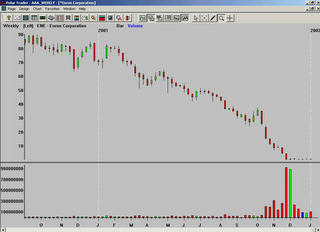1.Even the most successful traders lose money most (60-70%) of the time, money management is the key to success;
you need to manage your risk, exposure and losses
2.Follow the rules, bet small and stay alive
Armed with just these two phrases, you can learn a lot about trading the markets and developing a sound money management system.
They led me to focus not on how to identify winning trades, but rather on how to identify a winning money management system;
with the appropriate system, the trades will take care of themselves.
You can read his complete article here
http://partners.futuresource.com/fbp/2005/0204.htm
Money Management is precisely the reason DreamTai has controls built in like placing stop losses so that your maximum loss in a single trade is 2 percent of your capital.
In his article, he states that professional traders risk around 3 percent of their equity on a single trade.
Using DreamTai, you risk 2 percent.So, you can feel safe about money management. Suppose, by mistake, you buy a rotten stock like Enron and it tanks, the maximum you will lose is just 2 percent of your equity.
Actually, if we think of it, Dreamtai would not have allowed to to go long in Enron because the trend was already down when Enron was falling in price.
If you had wanted to trade in Enron, you would have shorted Enron ( just like Ken Lay and the other insiders ) if you had used DreamTai.
Enron's stock had dropped all year, from $68.50 in February 2001 to $49.10 in June 2001 to $27.23 in September 2001
In December 2000, with its stock trading at a peak of $85 per share, Enron had a market capitalization of over $60 billion, making it one of the largest U.S. companies.
Less than one year later, with the stock trading at well under $1 per share, the company declared bankruptcy-the largest case in U.S. history.
Over $60 billion in shareholder wealth was lost, and billions more of losses are likely to be incurred by creditors.
The company had $31 billion in debt on its balance sheet, with billions more in counterparty risk off balance sheet-a result of trading activity.
There is NO WAY you could have purchased Enron, if you had been following Dreamtai trading rules.
